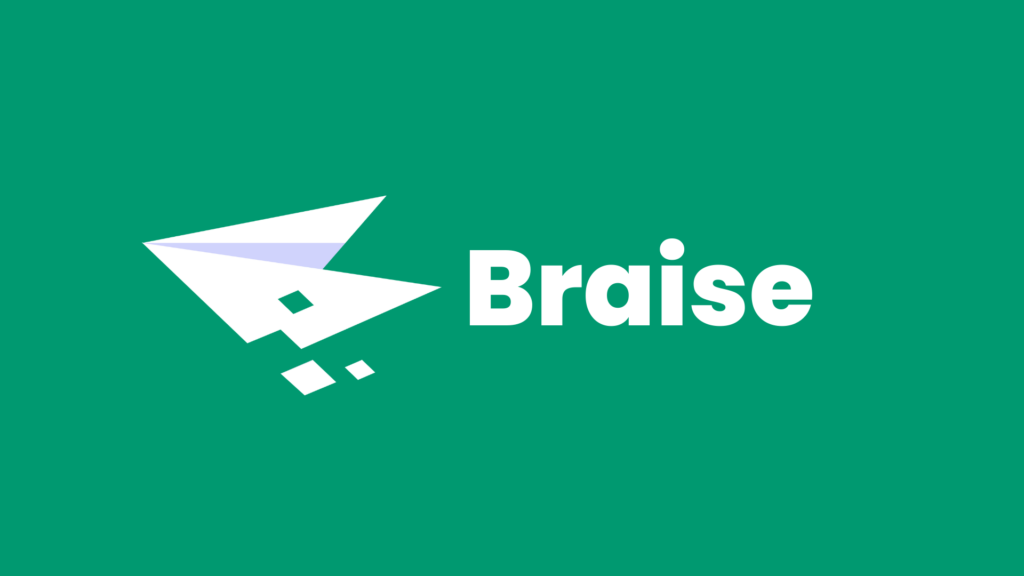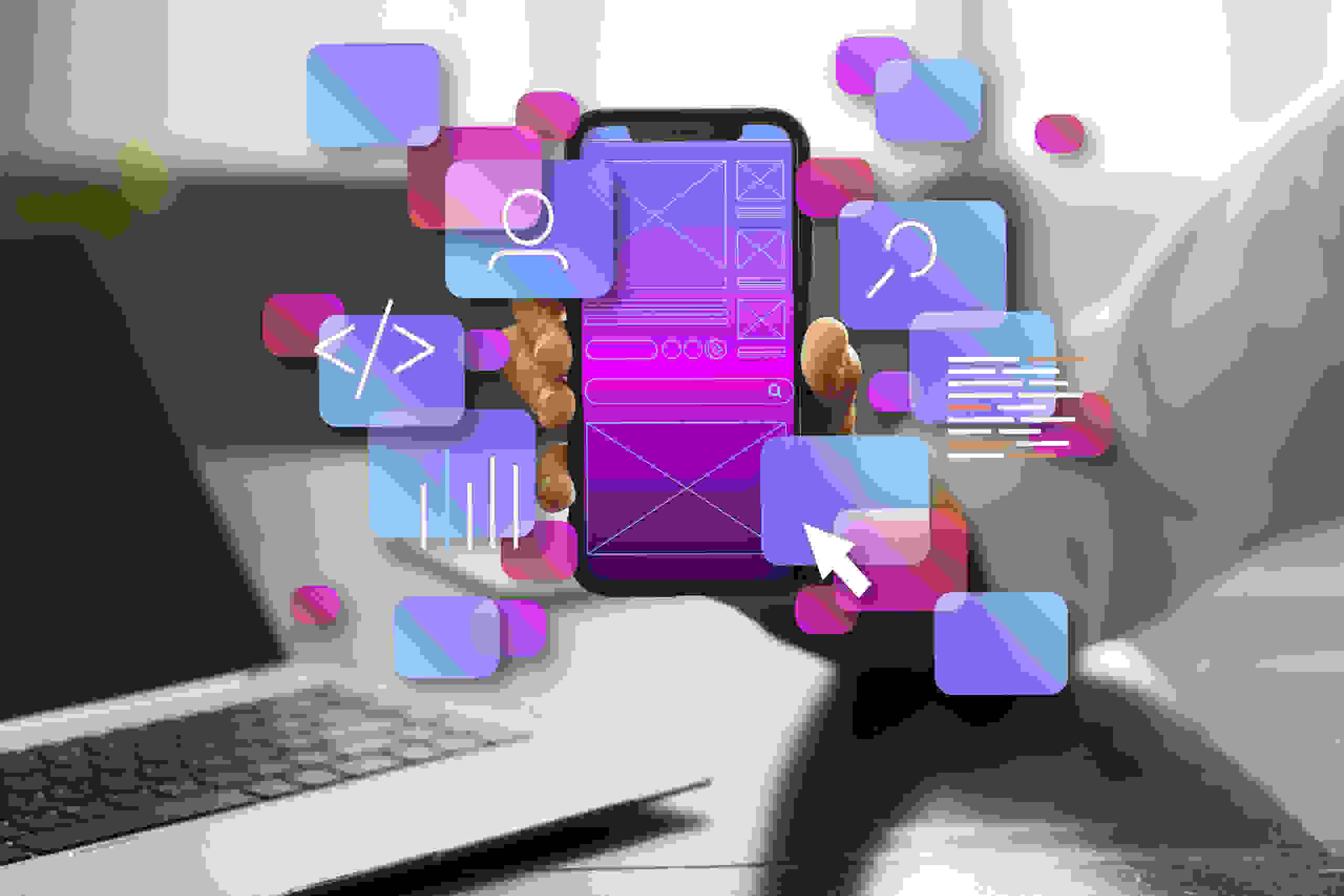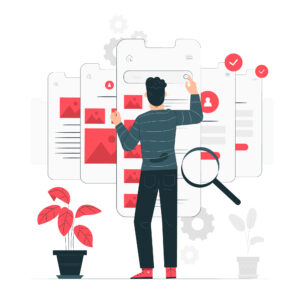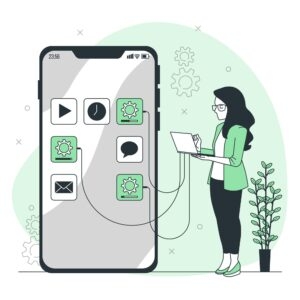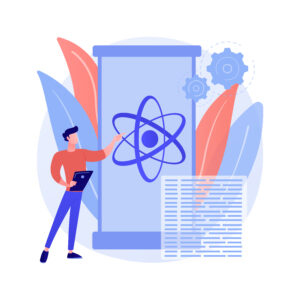In today’s digital age, app development is a gateway to innovation and engagement. Whether you’re a budding entrepreneur with a groundbreaking idea or a developer looking to expand your skill set, understanding the basics of app development is essential. In this guide, we’ll answer common questions and provide valuable insights into embarking on your app development journey.
How do I start developing an app?
Starting on the path of app development may seem daunting, but with a clear roadmap, it becomes manageable.
- Idea and Conceptualization: Begin by defining your app’s purpose and target audience. What problem does it solve, and how will it make users’ lives easier or more enjoyable? A well-defined concept is the foundation of a successful app.
- Market Research: Investigate your competitors and potential user base. Identify gaps in the market and unique features that can set your app apart.
- Platform Selection: Choose the platform(s) for which you want to develop your app. The primary platforms are iOS (Apple) and Android (Google), but you can also explore cross-platform options like React Native and Flutter for broader reach.
- Design and Wireframing: Create a rough sketch or wireframe of your app’s user interface (UI). This helps visualize the user experience and guides developers in building the app’s structure.
- Development Environment Setup: Install the necessary development tools and SDKs (Software Development Kits) for your chosen platform. For iOS, you’ll need Xcode (macOS); for Android, Android Studio (cross-platform options have their own setups).
- Coding: Start writing code based on your wireframes and design. Select a programming language compatible with your chosen platform (explained in the next section). Be prepared for debugging and testing as you go.
- Testing: Rigorously test your app to identify and rectify any bugs or issues. Emulators and physical devices are used for this purpose.
- Deployment: Once your app is polished and bug-free, it’s time to release it to the world. Publish it on app stores like Apple’s App Store and Google Play.
What programming language is used for app development?
The choice of programming language depends on the platform you’re targeting:
- iOS (Apple): The primary language for iOS app development is Swift, known for its safety and speed. Objective-C, an older language, is also used, especially in maintaining legacy apps.
- Android (Google): Android app development primarily uses Java and Kotlin. Kotlin has gained popularity due to its modern syntax and enhanced functionality.
- Cross-Platform Development: If you aim to develop for both iOS and Android simultaneously, consider using cross-platform frameworks like React Native (JavaScript-based) or Flutter (Dart-based). These frameworks allow you to write code once and deploy it on multiple platforms.
How much does it cost to build an app?
App development costs vary widely and depend on several factors:
- Complexity: The complexity of your app, including its features, functionality, and design, will significantly impact the cost. Simple apps will be more affordable than complex ones.
- Development Time: The longer it takes to develop your app, the more it will cost. Factors like the complexity of code and the number of developers working on the project influence development time.
- Platform: Developing for a single platform (iOS or Android) is typically cheaper than creating apps for both platforms simultaneously.
- Location of Developers: Developer rates vary globally. Hiring developers in regions with lower labor costs can reduce expenses.
- Maintenance and Updates: Don’t forget to budget for ongoing maintenance and updates to keep your app compatible with new devices and operating system versions.
A ballpark estimate for a simple app can range from a few thousand dollars to tens of thousands. Complex apps with advanced features can cost hundreds of thousands or more. It’s essential to carefully plan your budget and find the right balance between cost and app quality.
Does app development require coding?
Yes, app development typically involves coding. However, you don’t necessarily need to be a coding expert to get started. There are user-friendly development platforms and tools available, like low-code and no-code platforms, that allow individuals with little or no coding experience to create basic apps.
For more complex and customized apps, coding skills are indispensable. Learning to code can be a rewarding investment, as it grants you greater control and flexibility over your app’s functionality and design.
In conclusion, app development is an exciting journey that starts with a clear idea, the right programming language, budget planning, and coding skills. With determination and the willingness to learn, you can turn your app concept into a reality and share it with users worldwide. So, take that first step, and the possibilities in the world of app development are endless!
